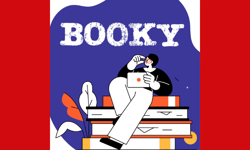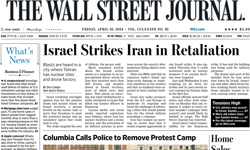AK: Let’s start with a broad overview of the sector. A lot’s been spoken about Web 2.0. What’s happening there? And when are we moving on to Web 3.0?
SW: Something happened about the time we were setting up the association. When you looked at pure profit and loss, they didn't look great, but you could see strong growth [in revenues] and you could see very strong growth in online audiences. But the third thing that was happening was this bubbling under of an intellectual nature, where you were starting to see blogging emerge, and Wikipedia. Intellectually, that’s now run its course. But what’s happening is traditional media owners still have to work out how to use it.
You have some quite buzzy start-ups which may face a tough time in 18 months or so, like hyper-local news. But I think if you look at developments on the semantic web, and where video is going to take us, you can start to see a new intellectual phase emerging [ie. Web 3.0].
AK: What do you think of Google’s current domination of search? Might the semantic web change that?
SW: Search as it stands, the more information you put in, the less it gives you back. If you look at vertical search, where the search engine understands the kind of content, algorithmically searched and retrieved information is going to become a big part of our lives.
AK: So the way people access your content is different?
SW: You have this phenomenon where, in a traditional world, you have to take what you are, boil it down to a media message and hope someone can decipher it and find your product. In the new media world, the number of people who engage with you as a whole entity is falling. No two people read the newspaper the same way, but what’s happening now is that people can and do just get the bits they want.
AK: Does that mean that, to some extent, you have to rethink the nature of your medium?
SW: We know what our core is. What you have to think is how do your readers experience you, and what you lose is some of the context that you would normally bundle in. If in the newspaper we run a pro-Palestinian piece one day and a pro-Israeli piece the next, the assumption would be that the pieces balance. On the web, people might never see the second article.
AK: There’s been quite a lot of fuss about the Telegraph claiming to be the UK’s number one internet newspaper – based on Hitwise data rather than ABC. Without going into that particular issue, is measuring internet traffic still an imprecise science?
SW: Our own server logs are pretty good data, and audited server logs are pretty good comparative data. It’s still too expensive to do what everyone ought to do, which is monthly UK and international figures [audited by ABC]. Those figures should all be made public.
We need the ABC to make something which can be achieved financially without being punitive. It’s a cost issue. And we all have to break out our UK and international figures and to make sure we’re serving ads up honestly and decently.
AK: Your market share online is much smaller than your position in print. How do you feel about competing with Google or MSN?
SW: Online advertising is a £2bn market. We have a strong position in classified advertising and a healthy position in the display market. Compared to Google’s numbers for the UK, we’re not quite there, but there’s a decent size market and there’s good growth in that market. As advertising gets more sophisticated, what we’re offering gets more sophisticated. There’s lots there for smart traditional advertisers, mixing online and offline.
On one level, you can take a brutal share view and say we might as well go home. But advertisers need a point of difference, and the work they do with us is the point of difference.
AK: So advertising is moving online more?
SW: There’s a steady progression online. I’ve been surprised how sophisticated advertisers are; they’re trying to find how to make it work. I’m not saying every media planner gets it, but a lot of them do, and think about brands like the Guardian in a truly cross-platform way.
AK: What do you think about the health of the online publishing sector? Is everybody getting it right?
SW: In terms of national newspapers, everyone’s got their act in gear that’s going to – the Times’ redesign is nice – there are just a few like the Express that haven't.
I think with consumer magazines, it’s trickier trying to define what those brands should be on the web. In lots of markets they’re losing audience online. That is a challenging sector, and as a result of it you’ll see some innovative work online.
The regional press is going to find things tough. It’s a very competitive market. The overall regional press story in print isn't that great. But you can see our integrated newsroom in Manchester, and look at what Johnston Press have done in Preston.
AK: Does that mean that integrating the on and offline operations is the way to go?
SW: Externally, people see no division between print and online. How you manage internally is dependent on what’s best pragmatically.
B2B is fascinating. They have some of the challenges of serving multiple brands and markets that the consumer press does, but they’re much more platform neutral – providing databases, allowing buyers to meet sellers in their markets. Reed has done a fantastic job.
And, in pure classified, Loot took the newspaper world by storm when it launched, and it’s now been disrupted in its turn. Autotrader [owned by Guardian Media Group] is the only classified publication that’s built a true online presence.
AK: Is there a big threat from Craigslist and other classified websites?
SW: Craigslist is a sort of phantom threat; it hasn't really resonated in the UK. Their lack of marketing and dependence on word of mouth is not going to quite do the job. As a digital business, they don't need every site to be a hit – the marginal cost of adding another site is low.
I think eBay is a bigger issue. All the job boards are a bigger issue, as are Autotrader and RightMove.
AK: The Guardian has done some interesting things in new media – tell me a bit more about Comment is Free, the Guardian’s news blog.
SW: Comment is Free attracts a lot of attention – it’s a hyperactive blog, it’s a blog on steroids. It will evolve more and more. Also, some of the tools around community management need to evolve.
I think the decision to create a branded entity rather than get 50 journalists to start their own blogs was crucial. Look at the Telegraph – no one links to them, no one cares about them. The journalists are blogging in a vacuum. Comment is Free is very much plugged into the way that discourse happens online. If we closed Comment is Free down, everyone would notice. If the Telegraph closed down fifty percent of its blogs, no one would notice.
But I think Been There [the Guardian’s user-generated travel resource] is in some ways a more exciting product. We saw Wikipedia and we saw Tripadvisor... It’s very tag based and it’s a very Web 2.0 property in the way it builds up a permanent resource. You’re creating not just something we can put in the paper every week but an ongoing resource.
AK: What’s happening with podcasting and video now? Are they taking over from text content?
SW: Broadcasters’ text output was traditionally almost zero – broadcasters doing text was the first sign of what I’ll call media convergence. So I think that is just going to be part of how we operate. The sophisticated question is where we will fit in the pantheon of online video – what will our role be, will we be creators, will we be aggregators? Over the next 18 months, a lot of advertising will be focused around that. Having no video would prejudice your ability to attract forward facing advertising.
On podcasting, the barriers to entry are much lower, so it’s more about content. I still think the whole thing has a whiff of the fax machine about it, but the appeal of freestanding audio is very strong.
AK: I understand you had problems getting broadband at your new house. So there’s still a dial-up core – though it’s getting smaller. How do you allow for that?
SW: It took us six months [to get broadband] and the rest of the village still doesn't have it; we put a leased line in.
But dial-up is dead. You do still have a non-digital core in Britain – those who, through age, are not interested, rural areas – which will eventually be connected – and an economic underclass. You’d be reckless to talk about 100 percent penetration domestically, but you’ll get access at work, through the pub, or you’ll get it via mobiles.
AK: Now, we’ve spoken quite a lot about the Guardian, and about the sector in general, but perhaps you could also speak with your AOP hat on. How has AOP changed over the last few years?
SW: There are two sides to that. First is just the sheer size of the membership - 30 members against the original six. And you now have all sectors of the media represented, though there’s not really enough regional media.
And secondly, now these are organisations that are growing rapidly and of intense interest to their parent organisations. None of us were ever cottage industries, but what you had previously was a collection of fledglings, with uncertain business models. All of us now work within organisations which see online as a key part of their business structure.
AK: So what’s in the near term future for AOP?
SW: Our job at AOP is to help people to build their digital business. And there’s a series of incremental steps to improve. We’re strengthening the events programme throughout the year; we’ve done six or seven seminars, we’ll work that up to eight, probably do a bit more research, introduce a few more networking events.
We’re a sector on the up. There’s still a lot of revenue and a lot of audience tied up in print media, and they are still at their heart attractive businesses. And online is growing strongly. What you’ve got is a period of transition.
FEATURE
Interview with Simon Waldman
If there's one figure who has become 'Mr Digital' in the UK print media, it's Simon Waldman. Group director of digital strategy and development at Guardian Media Group, he also took over the chair of the Association of Online Publishers in September 2006. Andrea Kirkby met with Simon to talk about what's happening in the digital world - and what the AOP has planned for its members.










